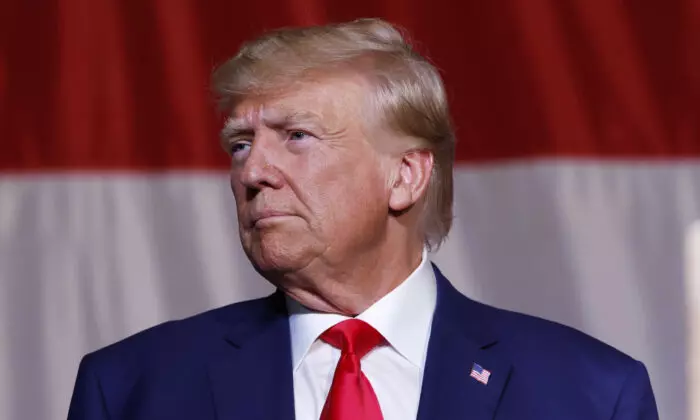Former President Donald Trump’s legal team has requested permission to subpoena records related to seven individuals and entities as part of his case in the District of Columbia. Trump is facing four felony counts for challenging the results of the 2020 presidential election, and the sought-after records are those missing from the archives of the January 6 Select Committee.
The filing states that through these subpoenas, President Trump aims to retrieve the missing records and uncover information about their disposal. The seven individuals named in the subpoena include the archivist at the National Archives and Records Administration, the clerk of the House of Representatives, the Committee on House Administration (the successor of the January 6 Select Committee), Richard Sauber, Jonathan Meyer, Rep. Barry Loudermilk (R-Ga.), and Rep. Bennie Thompson (D-Miss.
Sauber is an attorney who has served as special counsel to President Joe Biden since 2022. Meyer was confirmed as the general counsel of the Department of Homeland Security in October 2021.
Trump’s prosecution, led by special counsel Jack Smith, began in November 2022 and is investigating matters related to the January 6, 2021, Capitol breach events. The government has already brought forth more than 1,100 cases against individuals who were present at the Capitol on that day.
The former president has pleaded not guilty to all four counts and insists that his prosecution is politically motivated, highlighting the fact that Smith was appointed shortly after Trump announced his intention to run for office again in 2024.
Rep. Thompson, who is a member of the Committee on House Administration, wrote in August that the committee had received only 2.5 terabytes of data from the 4 terabytes claimed to have been retained by the January 6 Select Committee during its investigation. The missing records include video recordings and transcripts of interviews and depositions.
In July, Mr. Thompson confirmed in a letter that not all records had been archived. He explained that the records were unavailable for the committee to archive because they had been loaned to the White House special counsel and the Department of Homeland Security (DHS.
President Trump’s legal team also wants answers on whether the missing records were “lost, destroyed, or altered.” They argue that if it is discovered that evidence that could exonerate the former president was made inaccessible to him, this could lead to a violation of his constitutional rights under the Fifth and Sixth Amendments.
The subpoenas targeting the clerk and archivist are intended to seek out records that “may be maintained by more than one party,” according to Trump’s attorneys. They also argue that the government’s “failure to preserve evidence” could potentially emerge as a “due process violation” in the case if it turns out that evidence that could clear President Trump was made inaccessible to him.

